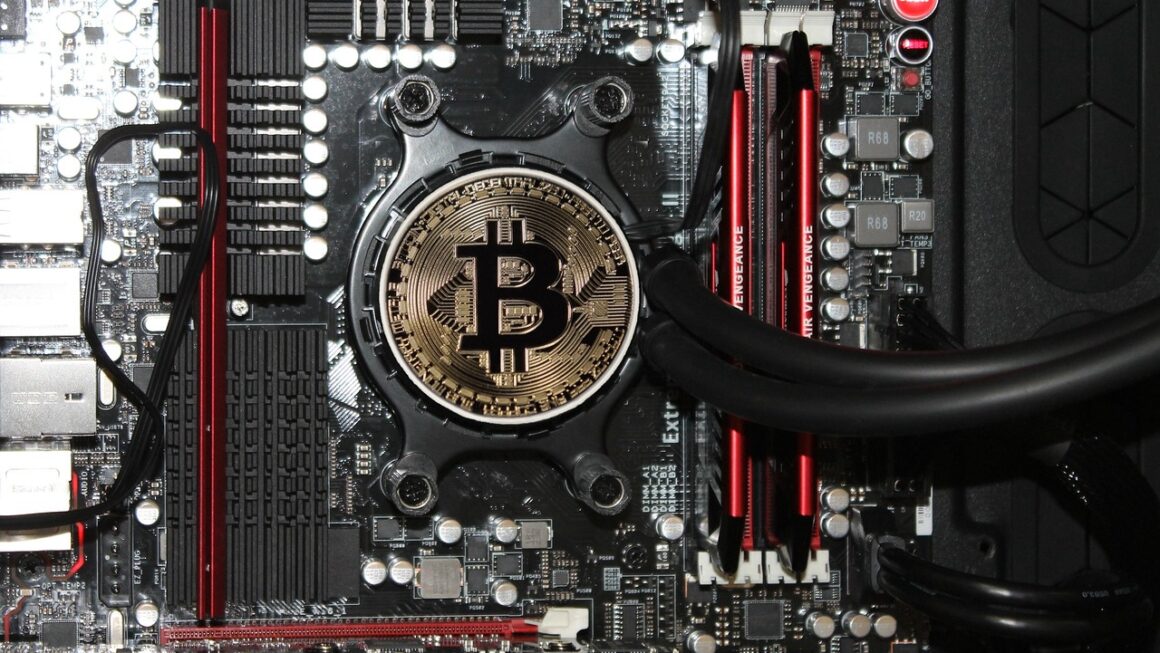Navigating the complex world of cryptocurrency can feel like sailing uncharted waters. One of the most significant, and often daunting, aspects of this landscape is understanding crypto regulations. As digital assets gain prominence, governments worldwide are grappling with how to oversee them, leading to a constantly evolving regulatory environment. This post aims to provide a comprehensive overview of the current state of crypto regulations, helping you stay informed and make responsible decisions in the crypto space.
The Current Global Landscape of Crypto Regulations
The regulation of cryptocurrencies varies dramatically across different countries. This patchwork approach creates both opportunities and challenges for businesses and individuals operating in the crypto space. Understanding the nuances of these regulations is crucial for compliance and risk management.
United States: A Multi-Agency Approach
In the United States, several agencies are involved in regulating cryptocurrencies, each with its own jurisdiction and focus.
- Securities and Exchange Commission (SEC): The SEC focuses on whether cryptocurrencies and initial coin offerings (ICOs) qualify as securities. If so, they are subject to securities laws, requiring registration and disclosure. For example, the SEC has brought enforcement actions against companies for unregistered ICOs it deemed securities offerings.
- Commodity Futures Trading Commission (CFTC): The CFTC oversees cryptocurrency derivatives, such as Bitcoin futures. They classify Bitcoin and Ethereum as commodities.
- Internal Revenue Service (IRS): The IRS treats cryptocurrencies as property, meaning they are subject to capital gains tax when sold or exchanged. This has significant implications for tax reporting.
- Financial Crimes Enforcement Network (FinCEN): FinCEN focuses on preventing money laundering and terrorist financing through cryptocurrency. Cryptocurrency exchanges are considered money service businesses (MSBs) and must comply with anti-money laundering (AML) regulations.
- Actionable Takeaway: Stay updated on pronouncements from the SEC, CFTC, IRS, and FinCEN to ensure compliance with U.S. crypto regulations.
European Union: MiCA and Beyond
The European Union is taking a more unified approach to crypto regulation with the Markets in Crypto-Assets (MiCA) regulation.
- MiCA’s Goals: MiCA aims to establish a harmonized legal framework for crypto-assets across the EU, providing clarity and consumer protection.
- Key Provisions:
Licensing Requirements: Crypto-asset service providers (CASPs) will need to obtain licenses to operate within the EU.
Stablecoin Regulation: MiCA places specific restrictions and reserve requirements on stablecoins to mitigate risks.
Consumer Protection: It includes measures to protect consumers from fraud and misleading information.
- Impact: MiCA is expected to significantly impact the crypto industry in Europe, fostering innovation while ensuring a safer environment for investors.
- Example: A crypto exchange operating in multiple EU countries will need to obtain a MiCA license to continue offering its services.
- Actionable Takeaway: Familiarize yourself with the MiCA regulations if you operate or plan to operate in the European Union.
Asia-Pacific: A Mixed Bag
The regulatory landscape in the Asia-Pacific region is diverse, ranging from strict bans to supportive frameworks.
- China: China has taken a hard stance against cryptocurrencies, banning crypto trading and mining.
- Japan: Japan has a more progressive approach, recognizing Bitcoin as legal property and implementing licensing requirements for crypto exchanges. The Financial Services Agency (FSA) oversees crypto businesses.
- Singapore: Singapore is aiming to become a crypto hub, with a regulatory framework focused on innovation and risk management. The Monetary Authority of Singapore (MAS) regulates crypto activities.
- South Korea: South Korea has implemented stricter regulations on crypto exchanges, including know-your-customer (KYC) and anti-money laundering (AML) requirements.
- Actionable Takeaway: Research the specific regulations of each country in the Asia-Pacific region before engaging in crypto activities.
Key Regulatory Concerns and Focus Areas
Regulators around the world share several common concerns regarding cryptocurrencies. These concerns drive the development of regulations aimed at mitigating potential risks.
Anti-Money Laundering (AML) and Combating the Financing of Terrorism (CFT)
One of the primary concerns of regulators is the potential use of cryptocurrencies for illicit activities, such as money laundering and terrorist financing.
- AML/CFT Measures:
KYC Requirements: Crypto exchanges are typically required to verify the identity of their customers.
Transaction Monitoring: Exchanges must monitor transactions for suspicious activity.
Reporting Obligations: Suspicious activity reports (SARs) must be filed with regulatory authorities.
- Impact: AML/CFT regulations aim to prevent criminals from using cryptocurrencies to hide or move illicit funds.
- Example: A crypto exchange might flag a large, sudden transfer of funds from an account with limited transaction history as a suspicious transaction.
- Actionable Takeaway: Comply with KYC and AML/CFT regulations to avoid legal penalties and contribute to a safer crypto ecosystem.
Investor Protection
Protecting investors from fraud, scams, and market manipulation is a key priority for regulators.
- Measures for Investor Protection:
Disclosure Requirements: Companies offering crypto-assets may be required to disclose information about the assets and associated risks.
Licensing and Registration: Crypto exchanges and other service providers may need to obtain licenses to operate, ensuring they meet certain standards.
Enforcement Actions: Regulators may take enforcement actions against individuals and companies engaged in fraudulent or manipulative activities.
- Example: The SEC has brought enforcement actions against individuals and companies for engaging in pump-and-dump schemes involving cryptocurrencies.
- Actionable Takeaway: Conduct thorough research before investing in crypto-assets and be wary of unrealistic promises or guarantees.
Financial Stability
Regulators are also concerned about the potential impact of cryptocurrencies on financial stability.
- Concerns about Financial Stability:
Systemic Risk: The interconnectedness of the crypto market with the traditional financial system could create systemic risk.
Stablecoin Risks: The failure of a stablecoin could have broader implications for the crypto market and potentially the financial system.
Volatility: The high volatility of cryptocurrencies can create risks for investors and the financial system.
- Measures to Enhance Financial Stability:
Regulation of Stablecoins: Regulators are focusing on stablecoins to ensure they are backed by sufficient reserves and subject to appropriate oversight.
Stress Testing: Crypto firms may be required to undergo stress testing to assess their resilience to market shocks.
- Actionable Takeaway: Understand the potential impact of crypto-assets on financial stability and support regulatory efforts to mitigate systemic risks.
The Impact of Regulations on the Crypto Industry
Crypto regulations have a significant impact on businesses and individuals operating in the crypto space.
Increased Compliance Costs
Compliance with crypto regulations can be costly, especially for small businesses.
- Compliance Costs:
Legal Fees: Companies may need to hire legal counsel to navigate the complex regulatory landscape.
Technology Investments: Implementing KYC and AML/CFT measures requires investments in technology and infrastructure.
Personnel Costs: Compliance requires dedicated personnel to monitor transactions, file reports, and ensure adherence to regulations.
- Impact: Increased compliance costs can create barriers to entry for small businesses and startups.
- Actionable Takeaway: Budget for compliance costs and seek professional advice to ensure you meet all regulatory requirements.
Market Growth and Legitimacy
Regulations can also foster market growth and increase the legitimacy of the crypto industry.
- Benefits of Regulation:
Clarity and Certainty: Clear regulations provide clarity and certainty for businesses, encouraging investment and innovation.
Investor Confidence: Regulations can increase investor confidence by protecting investors from fraud and manipulation.
Mainstream Adoption: Increased legitimacy can lead to greater mainstream adoption of cryptocurrencies.
- Actionable Takeaway: Support regulatory efforts that promote innovation while protecting investors and ensuring market integrity.
Innovation and Development
Regulations can either stifle or promote innovation in the crypto space.
- Potential Impact on Innovation:
Stifling Innovation: Overly restrictive regulations can stifle innovation by creating barriers to entry and limiting the types of activities that are allowed.
Promoting Innovation: Well-designed regulations can promote innovation by providing a clear framework for businesses to operate within, encouraging them to develop new products and services.
- Example: A regulatory sandbox can allow companies to test new crypto-related products and services in a controlled environment, fostering innovation while protecting consumers.
- Actionable Takeaway: Advocate for regulations that strike a balance between protecting consumers and promoting innovation in the crypto industry.
Staying Informed and Compliant
The crypto regulatory landscape is constantly evolving, so it is essential to stay informed and compliant.
Resources for Staying Informed
- Regulatory Websites: Visit the websites of regulatory agencies in your jurisdiction, such as the SEC, CFTC, FinCEN, and MAS.
- Industry Associations: Join industry associations that provide updates on regulatory developments.
- Legal Professionals: Consult with legal professionals who specialize in crypto regulations.
- News and Media: Stay informed through reputable news sources and industry publications.
- Actionable Takeaway: Dedicate time to staying updated on crypto regulations through reliable sources.
Best Practices for Compliance
- Implement Robust KYC/AML Procedures: Verify the identity of your customers and monitor transactions for suspicious activity.
- Seek Legal Advice: Consult with legal counsel to ensure your business complies with all applicable regulations.
- Train Employees: Provide training to employees on crypto regulations and compliance procedures.
- Monitor Regulatory Changes: Stay informed about changes to regulations and adapt your compliance program accordingly.
- Actionable Takeaway:* Develop and implement a comprehensive compliance program to mitigate regulatory risks.
Conclusion
Navigating the world of crypto regulations is an ongoing process. By understanding the current landscape, staying informed about regulatory developments, and implementing best practices for compliance, you can mitigate risks and contribute to a safer and more sustainable crypto ecosystem. As regulations continue to evolve, proactive engagement and a commitment to compliance will be essential for success in the dynamic world of cryptocurrencies.
Read our previous article: SaaS Scalability: Architecting For Hypergrowth And Beyond




